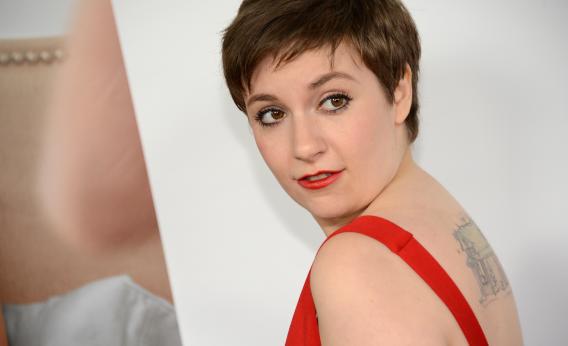When Playboy landed an interview with Lena Dunham for its latest issue, it sat down one of the most successful writer-director-producer-actresses on television today and gave her a hypothetical: “If you woke up tomorrow in the body of a Victoria’s Secret model, what would you do for the rest of the day?”
“I’d be really disoriented and wonder what had happened in the night,” Dunham responded. “I don’t think I’d like it very much. There would be all kinds of weird challenges to deal with that I don’t have to deal with now. I don’t want to go through life wondering if people are talking to me because I have a big rack. Not being the babest person in the world creates a nice barrier. The people who talk to you are the people who are interested in you. It must be a big burden in some ways to look that way and be in public.”
Given the body shaming heaped on Dunham since she first disrobed in Girls, you might think it would be a relief for her to move through the world as conventionally beautiful for a day. Dunham doesn’t see it that way. If she were Victoria’s Secret hot, she’d have to deal with another type of body policing. The constant attention over her dimensions would be coded as praise, but it would remain dehumanizing. The same men who take to message boards to complain about Dunham’s nudity would still be angry, but their aggression would be channeled into commentary on how they’d like to have sex with her. She would be asking for it for “flaunting” her body on TV. Her nudity would be viewed as pornographic, not artistic. You can bet she’d be accused of leveraging her looks to grab at money and success she hadn’t really earned.
In other words, changing Lena Dunham’s body wouldn’t change everyone else in the world. As James Hamblin wrote in the Atlantic this month, a growing number of studies suggest that “our culture discriminates against both the too-beautiful and the not-beautiful-enough.” And that’s particularly true of women. After a Slate email thread blew up about Dunham’s comments, Ellen Tarlin responded to the men in the audience who balked at the idea that anyone would refuse an upgrade in the looks department. “You think you’d be happier if you were better-looking, but would you feel the same way if you were in prison?” she wrote. “You don’t associate being attractive with any sort of threat, but for women it can be.”
We like to believe that attractive women exert sexual and economic “power” in our culture, but the systems set up to capitalize on their bodies—pageants, Playboy, porn, pop music—are rarely controlled by the women in front of the camera. Often, they are dominated by men. Sometimes, they’re explicitly exploitative. Lena Dunham has said that she gets naked on screen in an attempt “to feel some kind of ownership of your own body, the way getting tattoos does.” As a producer, director, and writer of her own show, Dunham has a lot more ownership over the way her body is viewed than models in the Victoria’s Secret Fashion Show do. It’s a rare power that Dunham wields, and she’s not eager to surrender it in exchange for a big rack.
